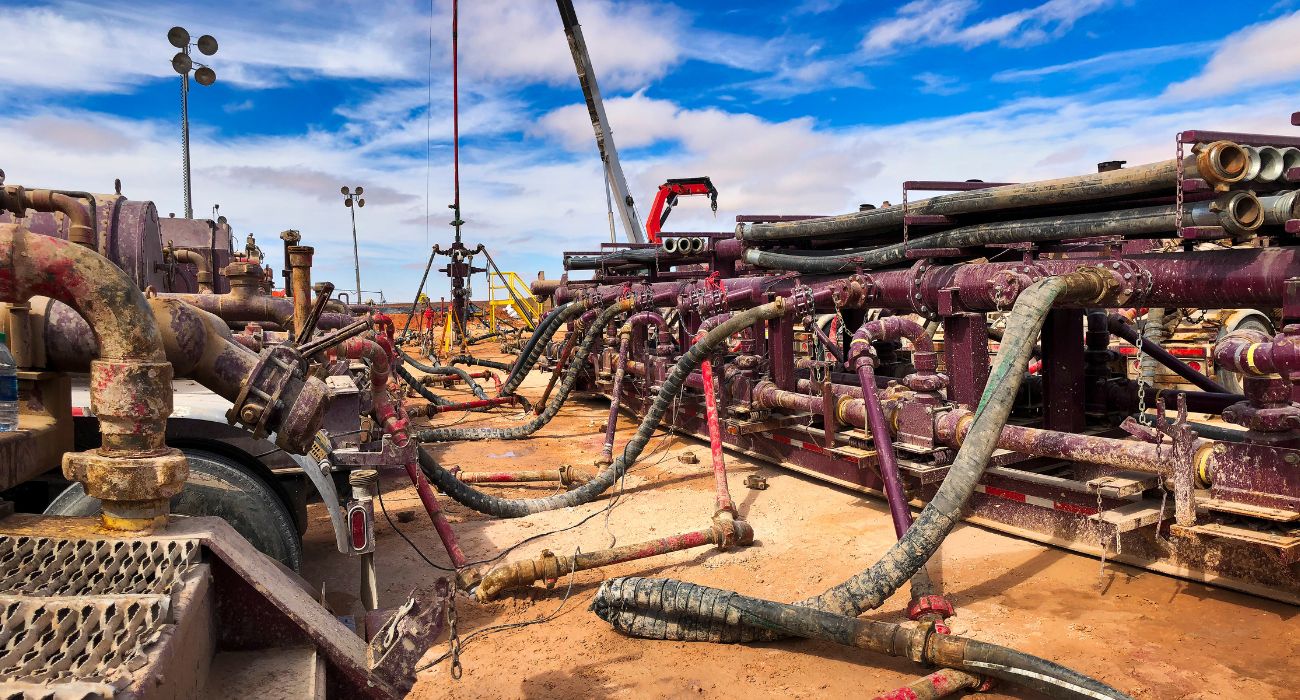As a water shortage threatens West Texas, a plan is in the works to repurpose fracking brine from the Permian Basin to ease the burden on freshwater aquifers.
XRI Holdings LLC, the largest Permian Basin water recycling company, is building its Evolution Pipeline System in the Midland Basin to push “produced water” — a salty fluid byproduct of fracking — back to firms for fracking. This recycling would lessen the industry’s reliance on groundwater, freeing up potable water for other uses.
“The project is a win-win-win for the industry, community, and environment,” XRI CEO Matthew Gabriel said in a press release. “The Evolution Pipeline mitigates over-pressurization risks caused by injection into salt water disposal wells, reduces the use of groundwater, particularly potable water sources, and lowers our customers’ costs.”
The system will have 230 miles of pipeline, recycling facilities, and wells to move wastewater. It will handle more than 500,000 barrels of “produced water” daily from Midland, Glasscock, Reagan, and Upton counties.
Using the system, XRI can put together long-term contracts for produced water and either recycle it or move it south, away from areas vulnerable to earthquakes.
Fracking operations usually inject produced water back underground using high amounts of pressure. The practice has been linked by some to increased seismic activity and an investigation by the Texas Railway Commission is underway, according to the Texas Tribune.
As The Dallas Express reported, an earthquake registering 5.4 on the Richter Scale struck the Permian Basin region of Texas on December 17. It was the largest earthquake to hit Texas since 1995 when a 5.7 quake hit Alpine in the Big Bend region of the state.
Paul Caruso, a geophysicist with the USGS’s National Earthquake Information Center in Colorado, told The Dallas Express that a 5.4 earthquake is “a strong one for Texas” but could not say if the quake was caused by fracking in the area.
“I can’t speculate on that,” Caruso told The Dallas Express.
In terms of the impact of fracking on local water resources, information is not readily available since oil and gas producers are exempt from reporting water well use in the Texas Water Code.
Nonetheless, the future of freshwater resources in West Texas — used not just for fracking but also for irrigation — is allegedly inevitable depletion.
“We’re just planning to deplete it. It’s not like we’re conserving it. We’re just making the crash landing slow and somewhat tolerable,” according to Jeff Bennett, a hydrogeologist in Alpine for the National Park Service.
However, fracking does not require the same pure, nontoxic water that irrigation does, and the treatment required to prepare produced water for reuse by fracking operations is relatively simple.
According to a 2022 report by the Texas Produced Water Consortium, which reported its findings on a state-sponsored study focusing on the Permian Basin, fracking companies are already reusing approximately 30% of their wastewater.
At this time, however, disposing of wastewater underground is still much cheaper for frackers than reusing it — although this is expected to change due to water scarcity, according to the report.
Although XRI currently only manages 1 million barrels of wastewater per day, the water recycling company believes its new pipeline network will offer a safe and cost-effective solution.
“The Evolution Pipeline is the most recent advancement of our efforts to bring critically important water solutions to our customers to increase reuse of produced water and to reduce waste in the most environmentally responsible manner possible,” according to XRI.
Whether the produced water is a solution to other problems caused by the looming water shortage is another question.
According to the consortium’s report, more studies are needed to test the safety of using produced water to irrigate crops not meant for consumption, such as cotton, whereas uses on edible crops or as drinking water seem out of the question.
The costs involved in treating produced water for irrigation are yet another hurdle.
“We have looked at getting that water and recycling it,” said David Shifflett, a Reeves County farmer. “I’m very interested in doing that, but at present, it’s just too expensive.”






